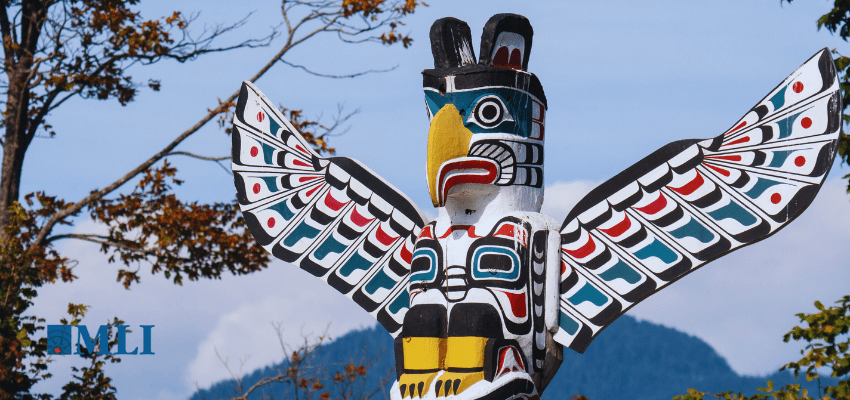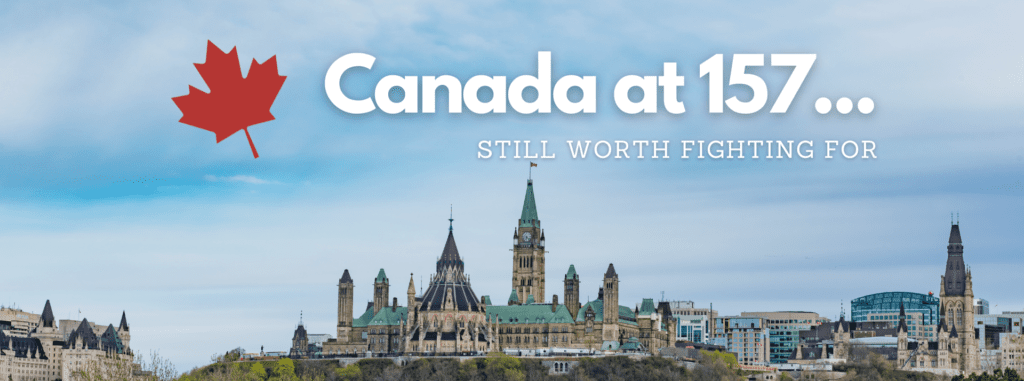By Ken Coates and Karen Restoule, June 29, 2024
At a time of intense disquiet in the country, with Canada Day reduced to little more than a national day off work with muted and cautious events across the nation, we seem to have forgotten that Canada provides us with many reasons to celebrate. Let’s start in an unexpected quarter: the amazing and inspirational resilience of Indigenous peoples.
For at least two generations, Canadians have focused on the crises and challenges facing Indigenous peoples. This follows on the heels of a century of obsessing about the “Indian problem,” which involved decades of attempts to draw First Nations, Metis, and Inuit into the Canadian mainstream. These efforts at cultural and economic transformation – the Indian Act, reserves, residential and day schools – were made worse by systematic neglect of the government’s legal and political obligations.
The results of Canadian “problem solving” are well-documented: widespread poverty, intense marginalization, massively underfunded community infrastructure, poor health outcomes, distressing levels of educational performance, staggeringly high unemployment rates, and the wreckage caused by racial discrimination and its close partner, government paternalism. There are many reasons for non-Indigenous Canadians to be ashamed, embarrassed, and repentant. Let’s save that important recognition for another day.
On Canada Day 2024, it is vital to recognize real and sustained accomplishment. Few if any stories in this dynamic and important nation come close to matching the sustained resilience of Indigenous peoples. For generations, and in the face of mounting hardships like the current epidemic of opioid use running through Indigenous communities, the people and their leaders fought back, creating one of the most inspiring and important stories in recent history.
As late as the mid-1960s, Canadian courts and government policy did not recognize the Indigenous right to fish, hunt, and harvest to feed themselves. Indigenous peoples took the Government of Canada to court on this matter – and won, repeatedly. Government denied Indigenous rights to treaty or the right to control their traditional lands. They went to court and won, repeatedly. The government denied the right of Indigenous peoples to influence resource development in their territories. They challenged the government in court – and they won almost all the cases, over 200 in total.
Indigenous communities without treaties spent life-draining decades negotiating modern agreements, and they succeeded in getting new accords across the territorial North, in Quebec, Labrador, and parts of British Columbia. They secured recognition of Aboriginal and treaty rights in the Canadian Constitution in 1982 and have spent forty years fighting to have their rights put into operation. More recently, they sought government recognition of their right to self-government, negotiating a set of transformative agreements and funding arrangements that gave Indigenous peoples real control over their affairs.
The struggle has not been limited to matters of governance. From a standing start only forty years ago, Indigenous communities created hundreds of economic development corporations, negotiated hundreds of agreements with resource and infrastructure companies, signed numerous joint venture partnerships with non-Indigenous firms, created thousands of jobs for community members, established several thousand companies, and secured procurement agreements with recalcitrant governments. Billion-dollar deals have now become commonplace, greatly expanding Indigenous local economies, as well as participation in the Canadian economy.
At the same time, Indigenous communities reimagined and reorganized relations with the medical community, finding space for traditional medicines and spirituality. They fought for and won massive compensation agreements – several in the billions of dollars – for the abuses of residential and day schools, the Sixties Scoop, long-ignored treaty obligations, and other examples of state malfeasance.
Community members focus on issues of language, culture, and education. Back to the land efforts are expanding rapidly. Remarkable individuals are fighting against the weight of Canadian culture to revitalize Indigenous language use. Many communities have retaken control of education – training and hiring Indigenous teachers, bringing Indigenous pedagogy into the classroom, and running their own schools and school divisions.
Consider the small number of Indigenous peoples in the country. Remember that communities struggle with inadequate funding and leaders are routinely diverted from key tasks by local crises. Contemplate the intense pressure on Indigenous leaders and community members to tackle dozens of key files simultaneously, facing off against well-funded government agencies and private sector organizations, each armed with numerous lawyers and officials. There is no way that they should win – but win they continue to do.
Canadians are having trouble finding reasons to celebrate their country, aided by a federal government that seems motivated by both divisive identity politics and post-modern formulations of national identity that focus primarily on criticizing the nation. Sometimes, however, the focus for national celebration can be found in the most unlikely of places.
Indigenous resilience is the most remarkable and most important development of our time. A small number of leaders, with few resources and crushing responsibilities, fought political and legal campaigns on dozens of fronts. They motivated their communities, devoted time and money to long shot and difficult battles, convinced the courts, and forced governments to change their approaches. Indigenous communities are much stronger for their efforts and determination.
Canada owes the Indigenous leadership in this country, contemporary and current, a great deal of thanks. They fought against overwhelming odds and prevailed repeatedly. They are in the process of reimagining Indigenous governance in Canada and rebuilding Indigenous economies. They are creating the foundations for long-term prosperity for their communities. Perhaps most important, they are revitalizing languages and cultures to make them relevant in the 21st century.
So, as we look for reasons to celebrate Canada this year, let’s start in the most unlikely or underappreciated places: with the amazing resilience of First Nations, Inuit, and Metis peoples.
Ken Coates is a Distinguished Fellow and the Director of Indigenous Affairs at the Macdonald-Laurier Institute.
Karen Restoule, a Vice President at Crestview Strategy, is Ojibwe from Dokis First Nation. The co-founder of BOLD Realities, which works to advance the industry-Indigenous relationship, Restoule also served First Nations leadership as Director of Justice at Chiefs of Ontario and led the modernization of Ontario’s administrative justice system at Tribunals Ontario.







